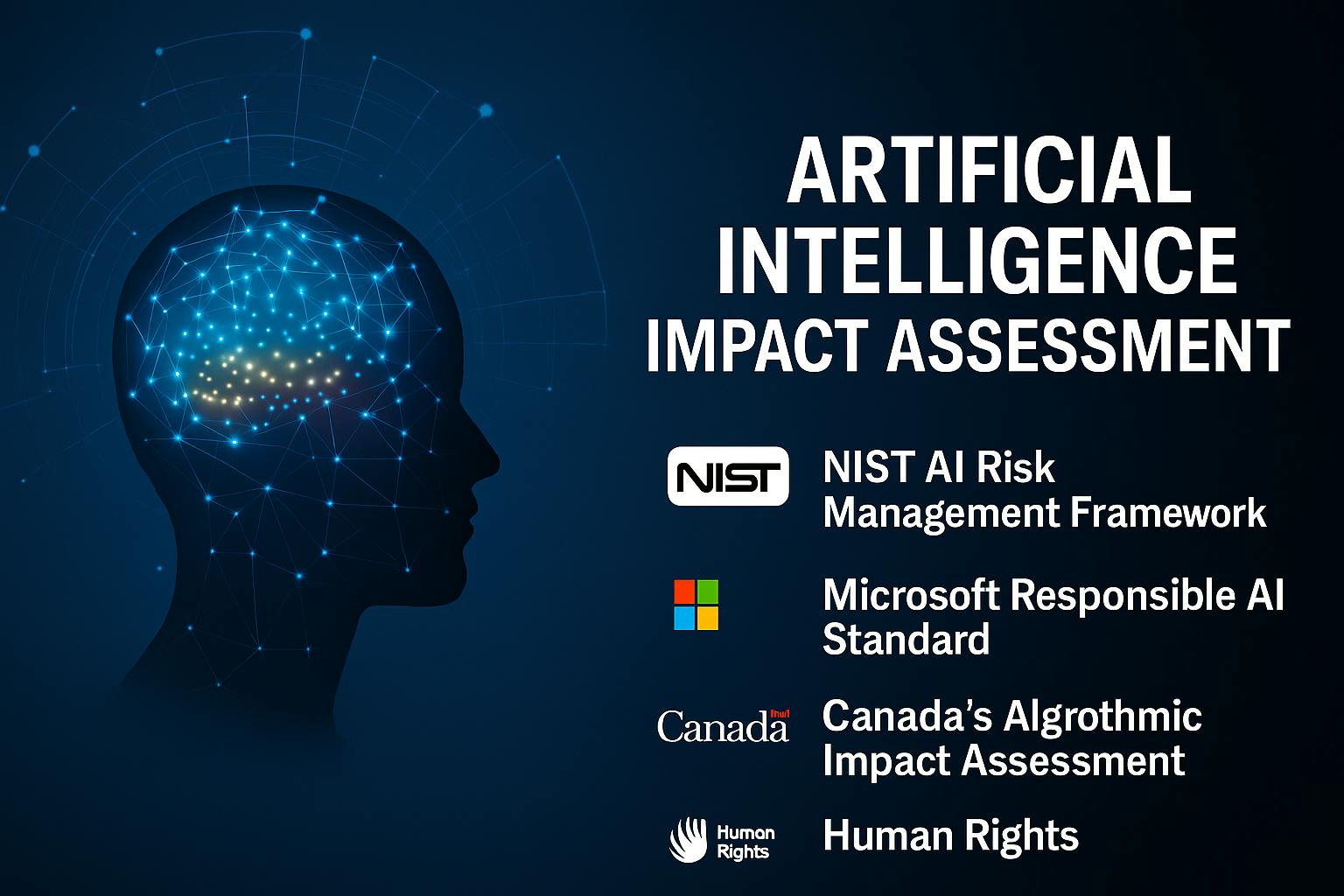Why Every AI Product Needs an Impact Assessment
“In one of my early predictive-modeling projects, we discovered a small but consistent accuracy gap between data-rich and data-sparse segments — a signal that our model was systematically favoring one group over another.”
If a seemingly minor accuracy gap can translate into large-scale exclusion, then the absence of structured oversight isn’t just a technical flaw; it’s a governance failure.
Executive Summary
AI is transforming industries. Yet, for all its potential, most organizations still deploy models without truly evaluating their societal, human rights, or ethical impacts. While regulatory frameworks like GDPR, CCPA, and the NIST AI Risk Management Framework provide important guardrails, AI governance as a field remains uneven and evolving.
The discipline that prevents unintended bias and reputational risk is the AI Impact Assessment (AIIA). An AIIA is a proactive way to measure how an AI system might affect fairness, trust, and accountability before it goes live. Without it, organizations risk learning from consequences instead of foresight.
Why Responsible Scaling Matters
As AI becomes seamlessly embedded across business workflows, its influence often outpaces reflection. Teams focus on building new AI-based capabilities, optimization, and market differentiation, sometimes overlooking the quieter question:
Who might this system unintentionally disadvantage?
History offers cautionary lessons:
- Automated systems once amplified hate speech against the Rohingya community in Myanmar, worsening human rights violations.
- In the U.S., the COMPAS algorithm showed racial disparities in predicting criminal recidivism.
Neither case stemmed from malicious intent; both resulted from unexamined assumptions within data and design.
These examples illustrate a truth every leader must acknowledge: AI doesn’t need to be unethical to cause harm; it only needs to be unassessed.
That’s where an AI Impact Assessment (AIIA) becomes indispensable. It bridges innovation and responsibility, allowing organizations to scale with confidence, ensuring that progress doesn’t come at the cost of fairness, transparency, or public trust.
How an AI Impact Assessment Changes the Equation
An AI Impact Assessment (AIIA) is not a compliance form; it’s a practical framework for foresight and accountability. It enables organizations to identify and address issues before they escalate into ethical, legal, or reputational risks.
When implemented well, an AIIA delivers five critical outcomes that strengthen both innovation and governance:
- Early bias detection and fairness evaluation: It helps teams uncover disparities in data and model performance early in development before they scale into systemic bias. Detecting uneven accuracy across user groups or categories allows for timely course correction.
- Transparency and documentation discipline: AIIA builds the habit of recording design decisions, model assumptions, and trade-offs. This transparency enables future audits and fosters internal accountability, making fairness a measurable process, not a moral afterthought.
- Risk classification and impact scoring: It converts ethical and operational uncertainty into structured insight. By assessing the severity and likelihood of potential harms, teams can prioritize mitigation where it matters most a core element drawn from the Canadian AIIA and NIST frameworks.
- Stakeholder accountability and cross-functional review: AIIA formalizes collaboration between data scientists, legal experts, and product leaders. This cross-disciplinary engagement ensures decisions reflect both technical feasibility and societal responsibility.
- Governance readiness and regulatory alignment: Beyond ethical intent, AIIA builds institutional maturity. It positions organizations to meet emerging AI governance requirements with confidence, demonstrating not only compliance but leadership in responsible innovation.
Together, these five outcomes redefine how AI can scale responsibly. An AIIA doesn’t slow progress; it gives teams the clarity and confidence to deploy AI systems that are fair, explainable, and trusted.
Frameworks That Work in Practice
There’s no single global standard for AI impact assessment, but several well-established frameworks offer strong foundations. The best results come from a hybrid approach that draws on multiple perspectives:
- NIST AI Risk Management Framework: Offers structure for identifying, mapping, measuring, and managing risk.
- Microsoft Responsible AI Template: Embeds documentation discipline and stakeholder accountability.
- Canada’s Algorithmic Impact Assessment (AIIA): Classifies systems by potential harm and mandates corresponding governance actions.
- Human Rights Impact Assessments (HRIAs): Center fairness, dignity, and non-discrimination throughout the AI lifecycle.
When integrated, these frameworks form a pragmatic blueprint for responsible innovation, balancing speed with stewardship.
The Executive Imperative
Without executive ownership, even the best frameworks become box-checking exercises. Organizations that make impact assessments non-negotiable earn more than compliance—they earn trust.
For decision-makers, this means three practical steps:
- Mandate impact assessments before every major AI deployment.
- Assign independent accountability; impact sign-off should sit outside product ownership.
- Monitor drift and re-assess periodically as models evolve and data changes.
In short, governance should not compete with innovation; it should enable it.
The companies that embed this discipline now will define the next decade of responsible AI leadership.
The Journey Ahead
Responsible AI is a practice. It demands curiosity about unintended outcomes, courage to delay launches when fairness is uncertain, and discipline to design for inclusion.
Every meaningful transformation begins with awareness. In AI, that awareness begins with an Impact Assessment.
Let’s Collaborate
- For builders: If you’re integrating governance into your ML pipeline, message me about early AIIA frameworks.
- For executives: If you lead AI strategy or risk oversight, let’s exchange practical implementation playbooks.


